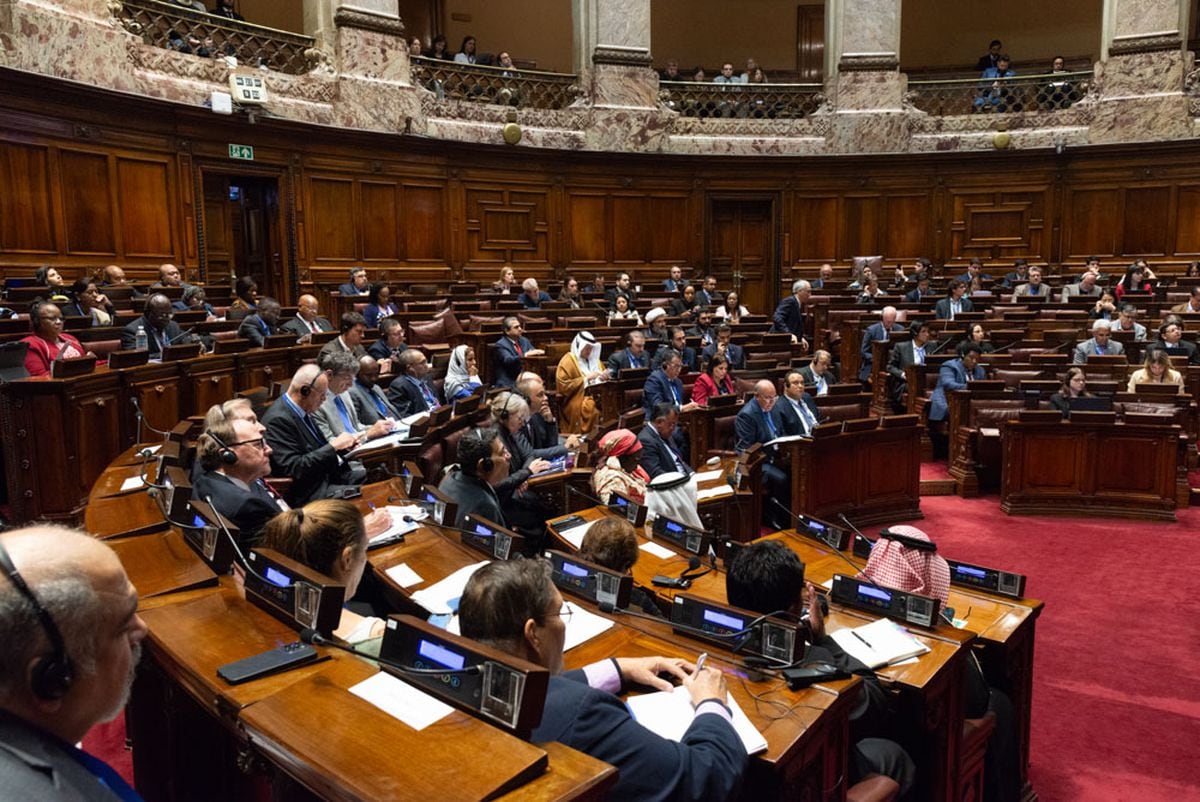Icon: enlarge
Elke Breitenbach, Berlin Senator for Integration, Labor and Social Affairs.
Photo:
Fabian Sommer / dpa
So far, Elke Breitenbach was not known to a broader public, especially not beyond the Berlin state politics.
Suddenly, however, there is great interest in the Left Senator for Integration, Labor and Social Affairs.
Beyond the borders of the capital.
The reason is the so-called migration quota with which the Senator wants to increase the proportion of people with a migration background in Berlin's public service.
The opposition reacts in horror, the coalition partner SPD has concerns.
The chairman of the Berlin Beamtenbund even considers the bill to be unconstitutional.
Breitenbach is undeterred.
It is obvious that there is a problem, she said in an interview with SPIEGEL.
In Berlin, 35 percent of people have a migration background.
It is not possible to say exactly how high the proportion is in administration and in companies in the country.
However, extrapolations based on the microcensus would result in around 12 percent.
Too little, far too little, thinks Breitenbach.
Especially since Berlin set itself the goal of increasing the proportion of employees with a migration background ten years ago in the Integration Act until it corresponds to that of the total population, says the left-wing politician.
That hasn't worked so far.
"Now we need binding regulations so that something changes," says Breitenbach.
So: a quota.
It would be the first of its kind in Germany.
If it were to be implemented, public institutions would also have to pay special attention to people with a migration background in their future personnel planning.
Similar to what is prescribed for women and the severely disabled.
Soft quota
But who would actually benefit from the quota?
According to the draft law that is currently being discussed in the Senate, these are people who were not born with a German passport, or who have at least one parent who was born without a German passport.
If the aim is to fill a vacancy, they should be given preferential treatment in the future if they have the same qualifications.
And this until the target from the law is met, i.e. until 35 percent of the employees in authorities have a migration background.
That is a “soft quota”, says Breitenbach, because the post does not remain vacant if there are no applicants with a migration background.
The performance principle is also not completely undermined, because the preference only applies to people with the same qualifications.
Contradiction from the SPD
That doesn't appease the opposition.
"A quota that is regulated through the preferential treatment of individual groups only fights the symptom, not the cause," says the parliamentary group leader of the FDP, Sebastian Czaja.
And Sven Rissmann from the CDU emphasizes that only performance, aptitude and ability should play a role in recruiting.
The AfD wants to sue the bill.
But Breitenbach's move is also causing trouble in the coalition.
The revision of the integration law is part of the coalition agreement of the red-red-green state government.
It says: "The coalition will promote intercultural opening in all administrative areas and increase the proportion of employees in the public service and in state-owned companies with a history of immigration."
At least there is nothing explicitly stated about a quota.
The Greens can obviously live with it anyway.
In the SPD, on the other hand, people are not happy at all.
The SPD-led Senate Department for Home Affairs refuses to sign.
They stand behind the goal, but not behind the version of the bill that has now become known.
"We had already notified the integration administration in writing last year of our reservations about signing. These were not included in the draft that is now publicly discussed. We regret that," said press spokesman Martin Pallgen to SPIEGEL.
The Social Democrats accuse Breitenbach of trying to make a name for themselves in their own party with this maximum demand.
There has been a clear agreement within the Senate that there will be no fixed quota, party circles say.
The SPD has constitutional concerns and considers the proposed regulation to be unjust.
Almost nobody wants to express themselves in public.
Only the interior expert of the Berlin SPD parliamentary group in the House of Representatives, Frank Zimmermann, called it on Twitter last Saturday "pretty bold" that the Left Senator announced a 35 percent quota for migrants in the public service as a coalition project.
In any case, the SPD parliamentary group did not decide on such a quota.
Criticism of the coalition partner
Breitenbach describes the objections as "dubious" and goes on to counterattack the Social Democrats.
"I can't remember that the SPD once came up with more specific suggestions on how to change the law." The same applies to the Federal Minister for Family Affairs and Berlin SPD top candidate Franziska Giffey, who recently stated what she thought of a migration quota: not a lot of.
Despite all objections, the Senator assumes that the proposed law will now be quickly confirmed by the other Senate administrations and can be submitted to the MPs for voting.
"I'm not prepared to put up with a procrastination," says Breitenbach.
Icon: The mirror









